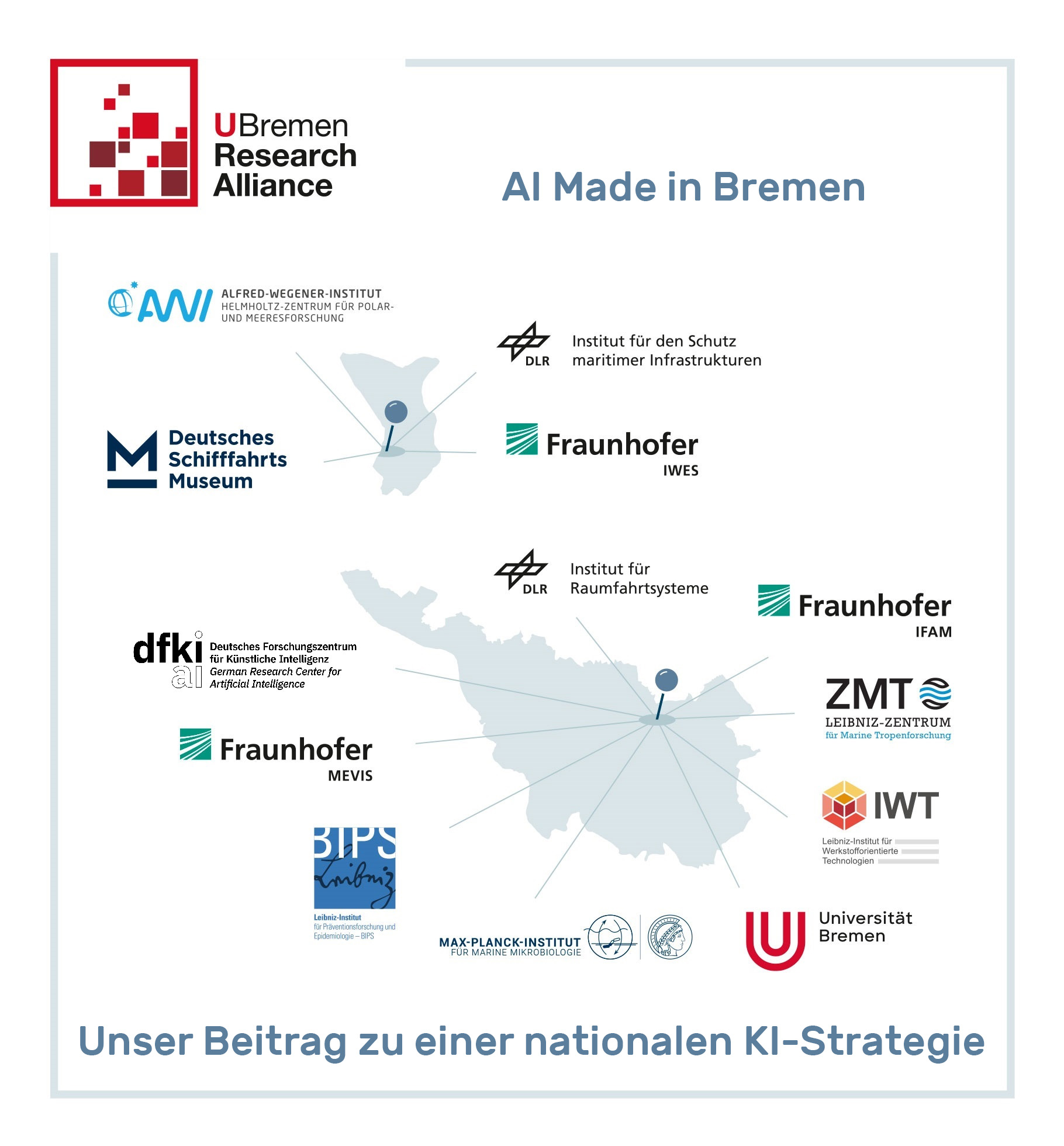23/05/2025 | The U Bremen Research Alliance (UBRA), which also includes the Leibniz Centre for Tropical Marine Research (ZMT), is campaigning for the further development of the AI ecosystem in Germany and has published a joint declaration to this end. The occasion is the resolution of the Conference of Heads of Government of the Federal States on 12 March 2025, which emphasises the central importance of artificial intelligence (AI) for Germany's innovation and competitiveness and calls for the expansion of efficient regional structures.
Download the statement as PDF: AI Made in Bremen: Our Contribution to a National AI Strategy Joint declaration by the member institutions of the U Bremen Research Alliance

About the U Bremen Research Alliance:
The U Bremen Research Alliance (UBRA) is a network of the University of Bremen and twelve non-university research institutions funded by the federal and state governments, employing around 6,500 people in the state of Bremen. UBRA is characterized by its regionally anchored, multilateral strategic focus and by strengthening cooperation among its members. It addresses major research topics across institutions and pursues the goal of creating a coordinated space for innovation, infrastructure, research, and knowledge transfer.
Mitglieder der U Bremen Research Alliance sind:
Universität Bremen; Alfred-Wegener-Institut, Helmholtz-Zentrum für Polar- und Meeresforschung (AWI); Deutsches Forschungszentrum für Künstliche Intelligenz (DFKI Standort Bremen); Deutsches Zentrum für Luft- und Raumfahrt – Institut für Raumfahrtsysteme; Deutsches Zentrum für Luft- und Raumfahrt – Institut für den Schutz maritimer Infrastrukturen; Deutsches Schifffahrtsmuseum Leibniz-Institut für Maritime Geschichte (DSM); Fraunhofer-Institut für Fertigungstechnik und Angewandte Materialforschung IFAM; Fraunhofer-Institut für Windenergiesysteme IWES; Fraunhofer-Institut für Digitale Medizin MEVIS; Leibniz-Institut für Präventionsforschung und Epidemiologie – BIPS; Leibniz-Zentrum für Marine Tropenforschung (ZMT); Leibniz-Institut für Werkstofforientierte Technologien – IWT; Max-Planck-Institut für Marine Mikrobiologie.




